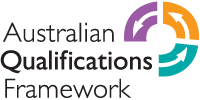CLET RPL is Helping Military and Police Transition with Conf...
This unit specifies the skills and knowledge required to assess security risks associated with client operations and formulate suitable treatment options as part of a risk management strategy. It includes analysing the client’s security objectives and operating environment and establishing criteria to select and prioritise risk treatment options consistent with recognised industry practice and guidelines provided by ISO31000:2018 Risk management – Guidelines (ISO 31000). The unit requires preparing formal reports detailing risk management options and possible consequences of not implementing recommended treatments.
This unit is suitable for those using a broad range of cognitive, technical and communication skills to select and apply methods and technologies to analyse information and provide solutions to sometimes complex problems.
Legislative, regulatory or certification requirements apply in some states and territories to the provision of advice on security solutions, strategies, protocols and procedures. For further information, check with the relevant regulatory authority.







